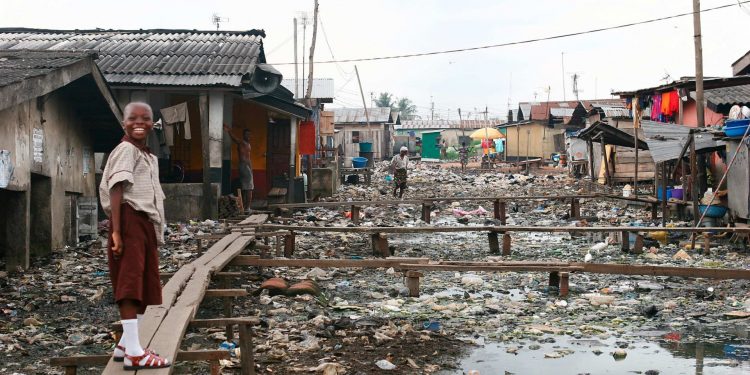Life as we know it is a never-ending puzzled journey full of unimaginable bits and bobs with several turns whilst we ride along to an unknown destination. Our differences are uniquely distinct from each other although unfair but naturally acceptable as a way of life.
At times, our instincts and will to fairly decipher certain situations come up inaccurately due to our failure to properly analyze the hows and whys of some life conditions.
We can also blame that on our already occupied mind space filled with past, present and future events that we are faced with as individuals.
The survival pattern in slums or deprived societies are very complex and tougher than we can imagine until one has had a personal experience of it.
From observations, research and experience, it’s easy to conclude that institutional systematic conditions and the foundations of numerous families in the slums have caused the large disorganization of the life patterns and waywardness among the younger generation, and even transferred into adulthood in some cases according to some individuals’ life history and socialization.
The reality is that, there are a few major key factors that can be mentioned as the causes of hardships and uneasy survival life pattern in the slums. There is poverty, broken marriages, unemployment, high negative peer influence, and an accustomed mindset.
A lot of families and individuals who are experiencing any of these factors are left with very little motivation to strive ambitiously as expected by society.
Many of the kids especially, grow up on their own even with their guardians around them.
The pain and traumas from their deprived life conditions have caused some parents to even forget about the actual responsibilities they owe to their children thus causing the younger generation to figure out lives for themselves, out of the home.
Unlike life in some other ‘comfortable’ homes and areas, families are well bonded and structured where parents are capable to afford quality time, care and financial investments into their children with the inclusion of all the needed emotional, physical, social and sometimes spiritual support needed for befitting upkeep and growth of children.
Well to do parents ensure they’re providing quality education, health, support systems and all kinds of futuristic assistance that they can give their children.
In contrast to this, the chances are that the parents grew up in broken homes, poverty, bad peer groups and support systems and so forth, thus giving them little knowledge and experience to understand the need to provide quality life standard for their kids.
A young man of 19, in one of the known slums in Accra, shared his story with me which gave me more insights to understand the slum culture even more than I thought I did from my experience.
He grew up as the fifth born in a family of seven children with a very abusive father who had no regard for their well-being or future. Unfortunately, he lost his caring mother to a stroke few years ago.
He is even popularly known for most of the notorious acts in his neighbourhood and elsewhere. He informed me about the dubious means to his survival and explained how he has no sympathy for how violently he’s turned out to be.
He dropped out of school after his mum passed and had to join his older brother as a mechanic to fix motorbikes. His father, who is still alive, cares less about their survival or whatsoever concerning their lives. Till this day, he’s still figuring out life for himself with no proper nurturing from a guardian.
This is actually a very common and relatable experience in many other slum communities here in Accra and elsewhere, thus the transformation from bad to worse just goes on and on.
Many times, people who grow up in the slums are faced with prejudice and all forms stereotypes specifically from people who have had no experience nigh to life in the slums.
It’s very easy and somehow fair to throw dirt on people from the slums because there are common examples of crimes and violence that have been committed by individuals from areas like that but I would say that it is not always right to come up with such justifications.
I would also say that the slums as well have raised many great people who have come up as refined and properly groomed even more than those from well-resourced neighbourhoods. Practically, the hardships in the slums when well-controlled, makes one very well prepared and consciously psyched for life’s hurdles regardless of where you find yourself.
There is also a very beautiful bond and a distinct level of understanding among people who have come up from the slums or yet to grow from it. Because of the shared similar experiences, friendships are held very much high among themselves.
Although it is easy to find most of them in what I’d call a ‘fairly angered’ mood, I bet that they are the most beautiful people you’d ever meet. Circumstances which are way beyond them have caused their actions to be seen as wayward or inappropriate.
I do believe that the only way we as a people can live in peace and harmony regardless of our tribe, religion and family backgrounds is through love and understanding. Being prejudicial has only fueled hatred and separation among us as a people.
Surviving in the slums is nothing mere to feel good about. It’s situational survival and we can only assist these situations and ourselves with love, support and oneness.
In the words of Jermaine Sinclair also known as Wretch 32, he said: “man will throw shades at the slum but I rate what it made me become”. Till we accept that we are one people living in different conditions, we can’t always have the unity we have unstoppably preached about from time memorial. We can do better!
–
The author Joshua Fosu Amoah is a human interest writer.


Comments are closed.